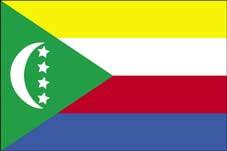Namibia strives to address the Agricultural Data Gap for reporting on the Malabo Commitments.

“Improved capacities for better data collection and analysis are very crucial in the effective implementation of agriculture, food and nutrition security programs and projects” intimated the Information, Communication and Knowledge Management Focal Point person of Namibia Ms Mirjam Fabian. Ms Fabian was speaking at the Comprehensive Africa Agriculture Development Programme Ex-Pillar 4 (CAADP-XP4) Knowledge Management and Data Capture stakeholder consultative meeting held at the Seaside Hotel in Swakopmund. The CAADP-XP4 programme is implemented by CCARDESA and is funded by the European Union (EU) and administered by the International Fund for Agricultural Development (IFAD).
The main purpose of the meetings was to learn from Namibia stakeholders how they collect Malabo Commitment data which they use to report at the national, regional, and continental level. The Malabo Declaration provides direction to transform the agriculture sector in Africa for the period of 2015-2025 within the wider framework of CAADP which was adopted in 2014 by the African Union (AU) member states to accelerate agricultural growth, transform shared prosperity and improve livelihoods. It is an essential document that assists the AU member states to achieve agriculture-led growth and end poverty and hunger. Namibia has endorsed the CAADP Process as a framework for its agricultural development programme and is one of the seven countries target countries for the CAADP-XP4 programme.
Malabo Declaration is guided by seven commitments which are: (1) recommitment to the principles and values of the CAADP process; (2) enhancing investment finance in agriculture; (3) ending hunger by 2025; (4) halving poverty through agriculture by 2025; (5) boosting intra-African trade in agricultural commodities and services; (6) enhancing resilience to climate variability and (7) enhancing mutual accountability for actions and results.
Namibia reported progress in implementing the Malabo declaration in the 1st Biennial report with a score of 4.1 but was, however, not on track in the 2nd report. Poor data collecting systems and processes were among the key challenges attributed to countries failing to meet the Malabo commitments.
To mitigate the lack of data collecting tools addressing the Malabo commitments, CCARDESA has engaged consultants who have been tasked to develop data capture guidelines that will be used at national, regional, and continental levels for the successful collection of the required data. The development of the data capture guidelines could not have come at a better time than this when SADC countries are struggling with how to collect the required data. CCARDESA through its CAADP-XP4 programme expects that the development of the data capture guidelines will facilitate the collection of data that meet the reporting requirements on the National Malabo commitments.
The one (1) day meeting was held on 19th February 2021 and was attended by Monitoring and Evaluation /data experts, planners and statisticians who contribute to the national agricultural reports from the Ministry of Agriculture, Planning and Finance.

























































